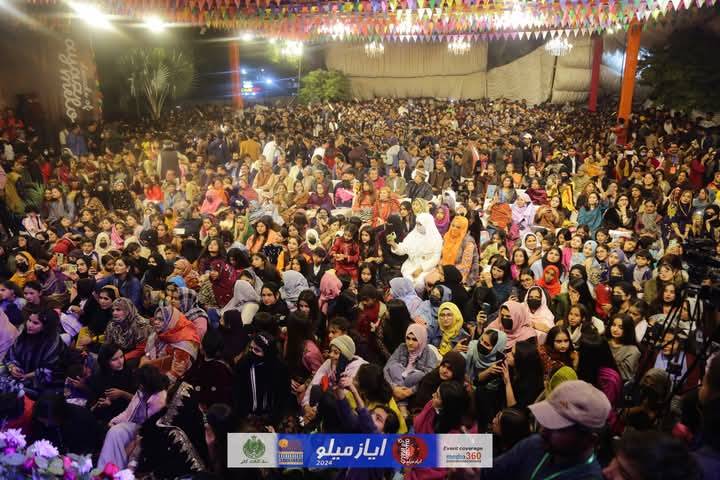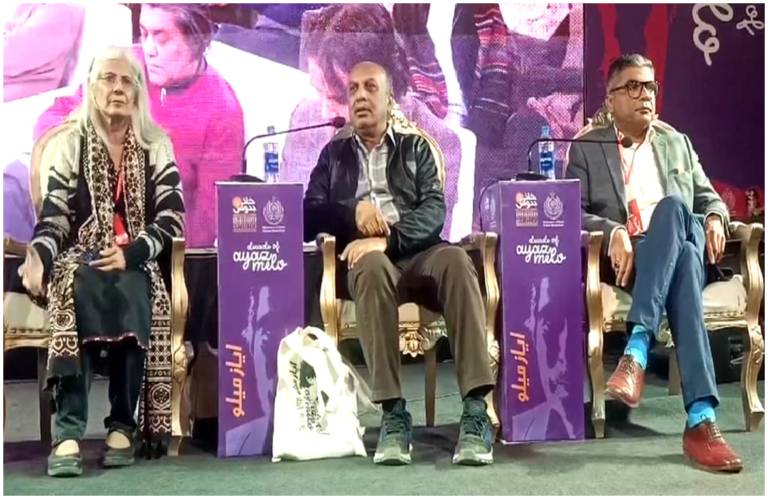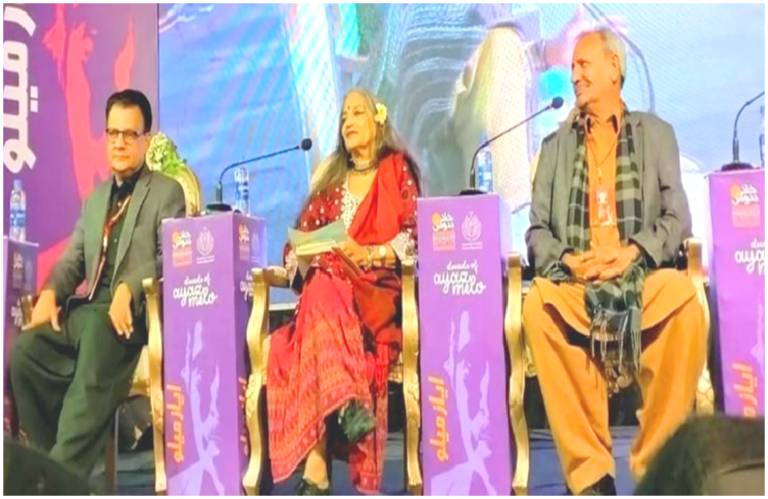
A three-day festival, 'Ayaz Melo,' honoring the iconic Sindhi poet Sheikh Ayaz, concluded on Sunday, drawing both praise and criticism. The event saw various speakers paying glowing tributes to the poet for his remarkable contribution to Sindhi poetry and literature. Multiple segments, sessions, and conferences were held to discuss the cultural, political, and social challenges facing the country.
During a session on the democratic challenges and political rights of citizens, noted journalist Wusatullah Khan commented on the ongoing turmoil in Pakistan's democracy. He stressed that, in the country, those who have the opportunity to vote are the lucky ones, as the majority of the population remains unaware of the importance of voting. "Sixty percent of the country's population comprises youth who can play a vital role in the country's development," he stated. Writer Javed Qazi added that democracy is directly tied to the rights of the people, but in Pakistan, religion is being used as a tool to suppress those rights.


Social activist Akber Qaimkhani placed blame on politicians for the country's current state, saying that they failed to adopt a uniform mechanism to rule the country after independence.
A major topic at the Ayaz Melo event was Sindh's water crisis, with experts raising alarms over the proposed Cholistan canal project. If implemented, this project could divert large amounts of water to irrigate Punjab's desert regions, leaving downstream areas in Sindh without sufficient water. Water experts, including Naseer Memon and Obhayo Khan Khushik, criticised Punjab for creating disparity in the water issue and condemned IRSA for its failure to implement the 1991 water accord. Syed Nawaz Shah, president of the Grower's Association, pointed out that paddy yields had drastically decreased in Sindh while Punjab's yields continued to rise, primarily due to improper irrigation water distribution to Sindh.
The experts called for a comprehensive and sustainable approach to managing Sindh's water resources. With Sindh still reeling from the devastating effects of the 2022 floods, they stressed the need for policymakers to prioritise the needs of local communities and the environment.
In a session on the message of Sheikh Ayaz's poetry, Ayaz Latif Palijo spoke about the poet's emphasis on tolerance and consistent struggle. He highlighted Ayaz's deep connection to Sindh and his portrayal of the region's cultural beauty. Madad Ali Sindhi remarked that Ayaz's poetry often featured historical revolutionary figures, including the classical character Raja Dahar. A stage play based on Ayaz’s short story Paresiri-Neighbour was also performed by Dr. Asif Memon, his wife Dr. Kazbano, and their team.

Musical concerts, although marred by violence, attracted a large number of music lovers. Performers such as Sanam Marvi, Rajab Faqeer, Manjhi, and Ashiq Nizamani captivated audiences with soulful renditions of folk music. However, the event was marred by an incident where young lawyer Shahid Mirani was severely beaten by police officers after allegedly chanting anti-state slogans. The police later detained him at a local police station. A delegation from the district bar association, led by Advocate Shakir Nawaz Shar and Advocate Haq Nawaz Jamari, arrived at the station and secured Mirani's release. An FIR was later filed against the police officers involved in the incident.

On social media, many users criticised the Ayaz Melo festival, labeling it a government-sponsored event that presented an unrealistic portrayal of Sheikh Ayaz and his achievements.

